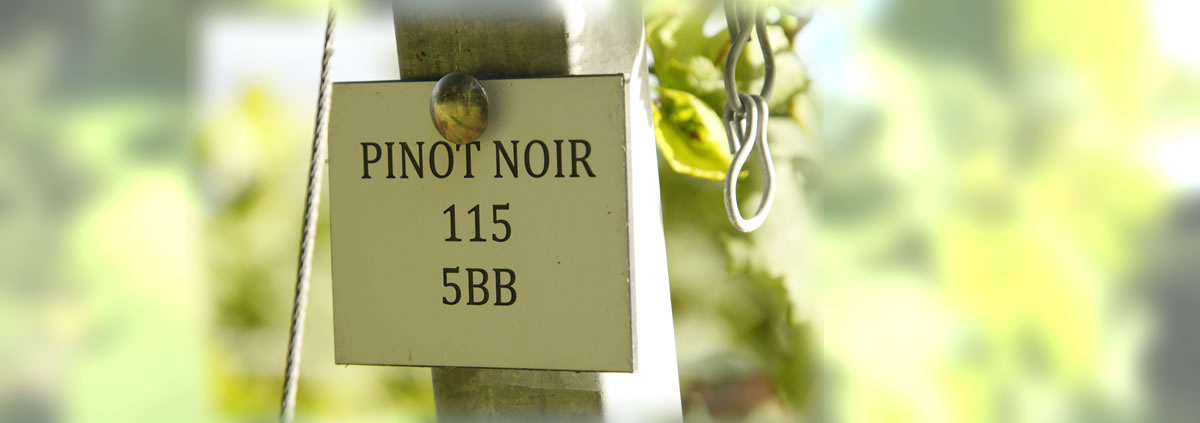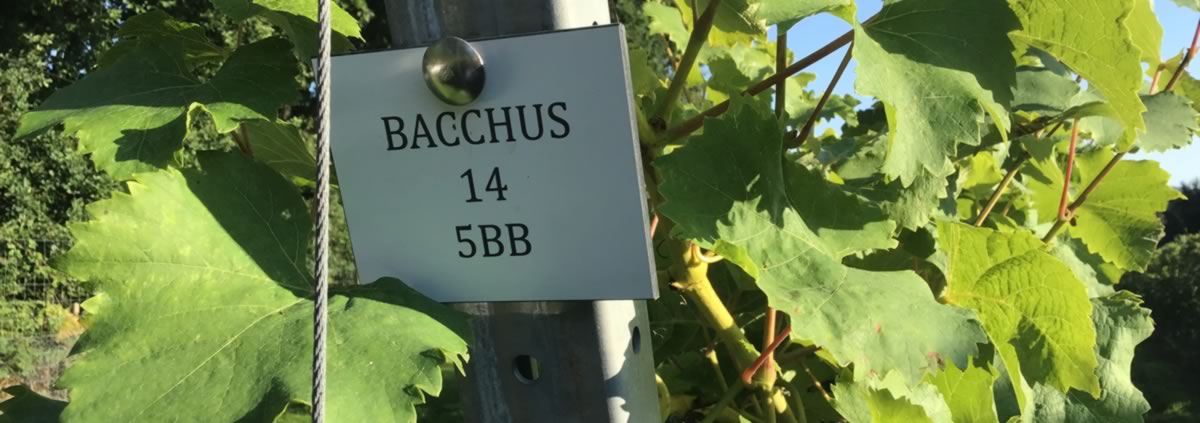The Grapes
The selection of the most appropriate rootstock and clone for a particular terroir to produce the best wines is one of viniculture’s greatest challenges.
At Trotton Estate Vineyards we largely selected 5BB and SO4 rootstocks which favour free draining sandy soils. The choice of the grape variety is relatively straightforward being dictated by the style of wine you want to make. However, all grape varieties have a multitude of different clones so the correct clone selection is crucial. For example, a particular Chardonnay clone might be selected in one part of the vineyard because it supports fast growing foliage whilst in more shaded areas a clone with the opposite characteristic might be sought. Understanding the complexities of matching the correct rootstock with an appropriate grape variety and specific clone is the essence of setting one wine apart from another.

At Trotton Estate Vineyards we make both sparkling and still wines. For the sparkling, being “modern purists”, we chose the three classic Champagne grapes – Chardonnay, Pinot noir and Pinot Meunier.
The range of grapes from which to make the still wine is much wider but we ultimately settled on Bacchus and Pinot Gris. Bacchus has emerged as one of the UK’s secret ‘still wine’ weapons and we chose the Pinot Gris to add a little complexity.
At Trotton Estate Vineyards we have 4.2 hectares planted with 20000 vines.
For the Spectacular Sparkling:
Chardonnay 8000
Pinot Noir 6000
Pinot Meunier 2500
For the Brilliant Bacchus with a dash of Pinot Gris:
Bacchus 2500
Pinot Gris 1000

The yield that an individual vine produces in any given year is a combination of its make up (rootstock and grape variety), the ‘terroir’ (climate and soil characteristics), the specific weather of that season and the skill of the wine grower. In a bumper year one vine is capable of producing 2 to 2.5 Kg of grapes which might press enough juice to make up to two bottles of wine. Chardonnay and Bacchus generally yield much more fruit than say Pinot Meunier and Pinot Gris. Across our 20,000 vines, the yield could vary as much as between 10 to 40 Tonnes depending on conditions. One Tonne of grapes might press down to around 600-700 bottles of wine. The yield and economics are highly variable from season to season.
However, a high yield may not necessarily mean universal quality and some of the leaner years produce a higher concentration of flavours in the remaining berries which very often produce stunning wines if not much of them. The restrictions that exist prohibiting watering of the vines mean the impact of the seasonal variations is truly reflected on what goes in the glass . . . just as nature intended.

